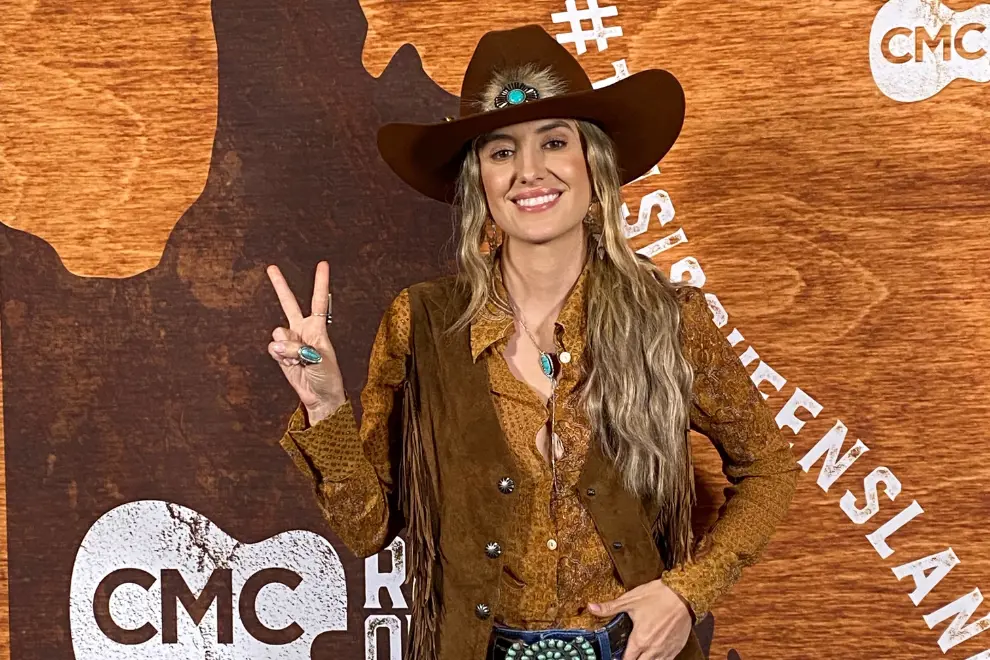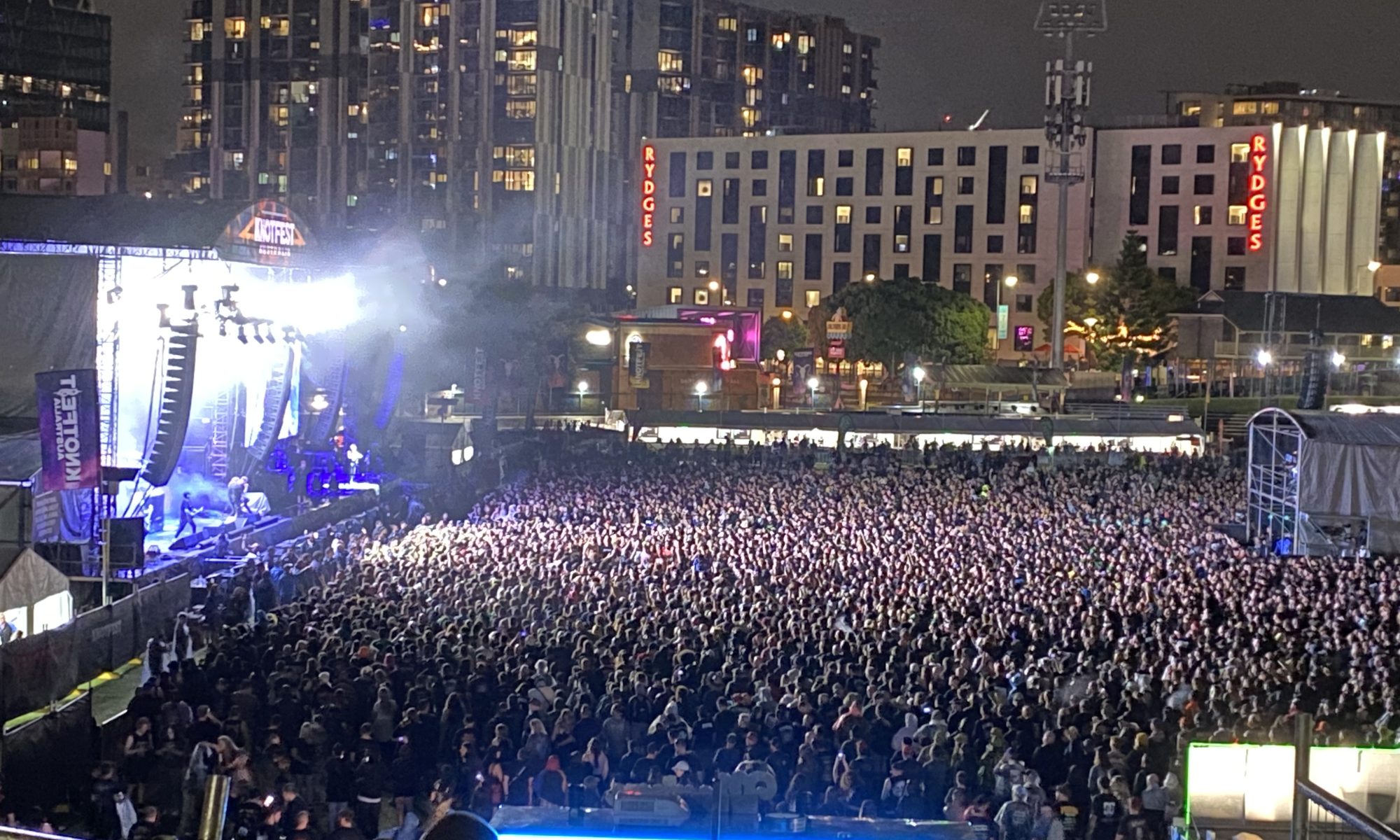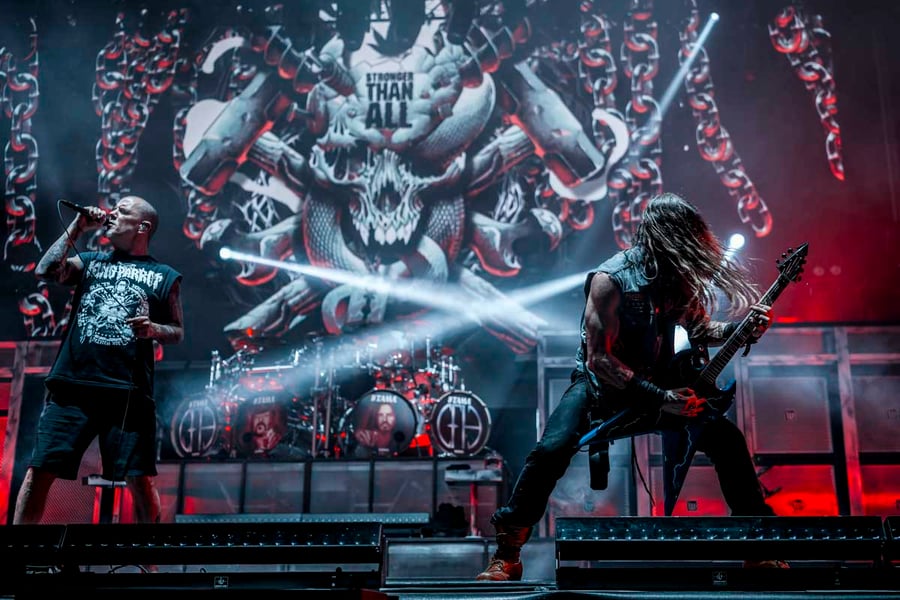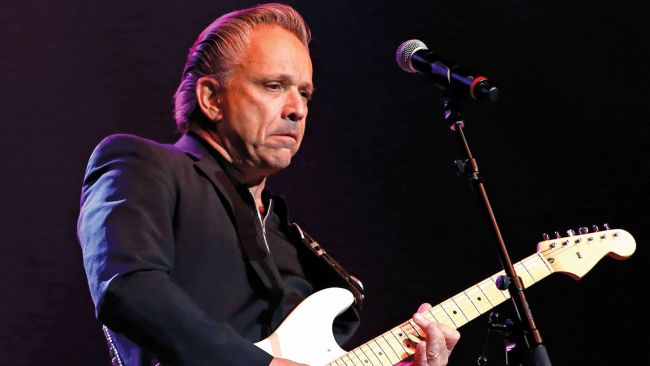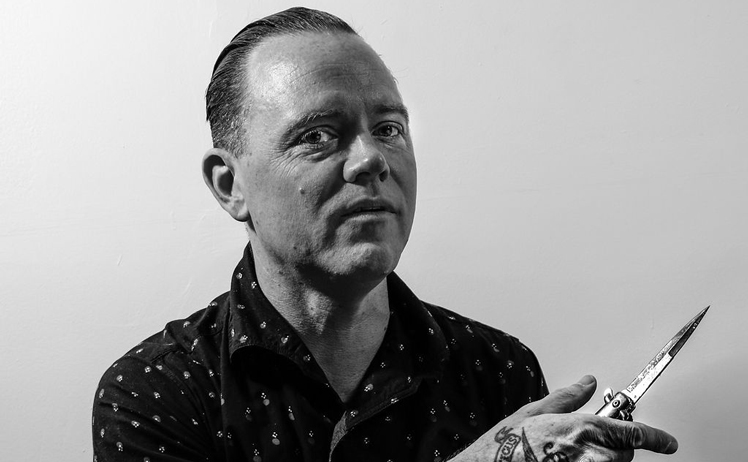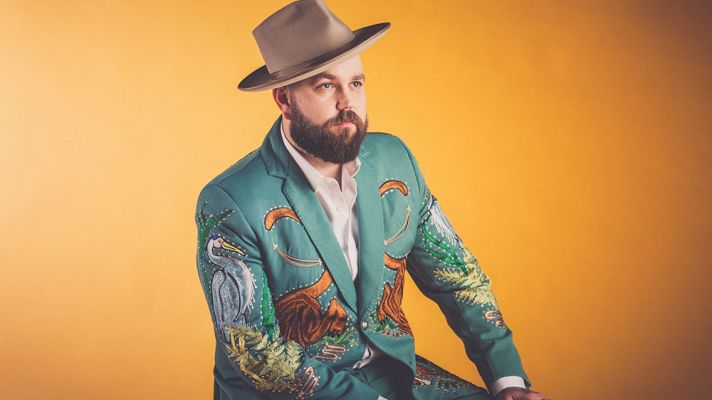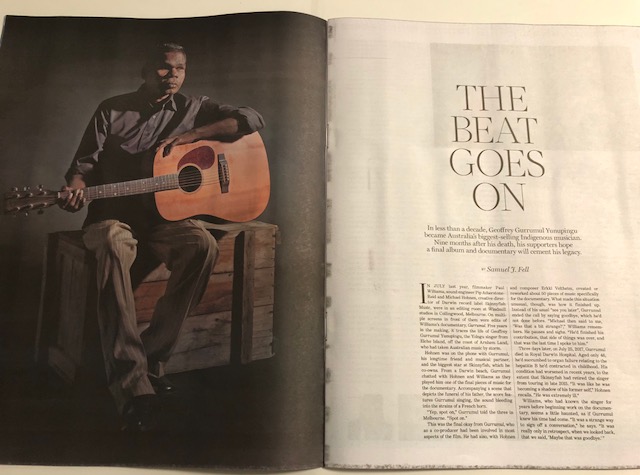Tyler Hubbard has the pedigree, but right now it’s all about the new chapter, which sees his second solo album imminent, writes Samuel J. Fell
[Originally published in CountryTown (online), March 2024]
Tyler Hubbard throws a mean cornhole. I see him play, with a couple of rowdy country music radio DJs after their interview, as I sit in the media area backstage at last weekend’s CMC Rocks, waiting to interview him myself. Hubbard is insouciant, almost bashful about it, but he lands those bags right where they need to be, much to the delight of the DJs and assorted media types milling about.
He’s also, for one of the more successful artists in modern country music, extremely humble. He comes across as entirely unpretentious, more than happy to talk, grateful for the interest. As if he needs to be grateful – the interest is genuine, and well-placed; as one half of Florida Georgia Line, along with Brian Kelley, the pair over their career together amassed 19 #1 singles, more than 17 billion streams globally, and have sold close to five million albums. These are immense numbers by anyone’s standards, made all the more stark by the fact the duo decided to put their hit-making antics on hiatus, back in 2021.
And so, Tyler Hubbard, over the past three years, has added another quiver to his bow – one half of an incredibly successful country music / hybrid duo; ace cornholer; and now, country solo artist. He hit the ground running, last year releasing his eponymous solo debut, a record which did extremely well (over one billion streams), and it was an exercise he enjoyed so much, next month will see him already releasing a follow-up, the second full-length album under his own name, Strong.
“I love to write songs and I write a lot every year, so it was nice to be able to pull from the pile and say, yeah, let’s go ahead and put out another album and continue to kinda feed the fans,” he smiles, adding, “it seemed like they were wantin’ more, so we were able to do that. I like the pace of an album a year – I don’t know if I’ll do it every year, but it feels nice right now, and you know, it’s a pace I think I could sustain, at least for a little while. Keep the fans [happy]… give ‘em what they want,” he laughs again.
Of the transition from duo to solo (albeit with a band behind him), Hubbard says the transition has been fairly seamless and that he’s, “really enjoying this new season, a new challenge, and kinda getting to rebuild, it’s been a lot of fun. I’ve settled in nicely, kinda found my rhythm, having a lot of fun with it… getting to connect with the fans on a more personal level now, and just having some individuality, it’s been nice.”
One thing that rings true for both his musical endeavours thus far, is the songwriting itself. At the core of what he’s always done, is the writing, the songs forming the foundation from which he’s been able to build, whether with a partner or not. “[Yeah], I think fundamentally, it’s all about the songs, I’ve always put a lot of value in the songs, and I’d say that’s the foundation of anything,” he acknowledges. “So I’d say, just continue that motto over to my solo career, trying to write the best songs I can and put out the best quality music that I can put out, and see where it takes me.”
Of course, Hubbard has, coming into the solo realm, the benefit of his past upon which to build – he already had a dedicated fanbase, to say the least, a fanbase who would have been only too glad to turn their attentions to his solo endeavours once Florida Georgia Line decided to call a halt to proceedings. Having said that however, Hubbard is genuinely passionate about his current fanbase, and knows that despite his past, they won’t just take anything he dishes out. As such, it’s this fanbase, which made themselves known after the release of Tyler Hubbard last year, that have inspired Strong.
“[In terms of what’s inspired the songwriting on this album], I’d say a little bit of everything, life experience in general, but I’d say the majority of this album was inspired by the live show and just getting to know my fans last year for the first time, being out on tour and… starting to get to know my fanbase,” he smiles. “So I’d say the majority of the inspiration was pulled from them, really. Just the energy they gave me on tour last year, and like I say, most of these songs were written on the road, so literally just taking that energy the fans gave me and taking it back to the bus and writing this album.”
So how is this album different? How is Strong an evolution from Tyler Hubbard, despite the fact the two records appear barely a year apart from one another? “This album is different from the debut in a sense that the debut album was a kinda introduction to who I am I guess, an introduction to the world,” Hubbard explains.
“Whereas this [new] one is a little bit more settled in, a bit less about the fans getting to know me, just putting out good music that’s good to play. And of course, I do think the fans will get to know me probably even a little bit deeper… the first album laid the foundation for that, but this second one goes a little bit deeper and also it’s just a fun album that’s kinda made to play live.”
I venture then, that there’d have been quite a bit less pressure, from himself if nowhere else, when it came to making the record. “Yeah, maybe a bit less pressure,” he says thoughtfully. “I was confident in the songs I had written last year, and confident that the fans were there and were lovin’ what I was doing, and just felt all the support, and that helped relieve a lot of the pressure of making the album.”
And so this is Tyler Hubbard as he is today. He’s got his past, and it is indeed well documented. But he’s got his now, a time with which he’s most concerned, and with good reason – Strong is a hotly anticipated release, it sees Hubbard at the peak of his powers, riding the wave, the momentum, he’s created thus far. “You never know what life’s going to throw at you, as we’ve all learned over the last few years,” he smiles, “but yeah, I love writing songs… in a perfect world, I get to keep writing songs and making albums and playing shows and connecting with the fans, that’s my goal.”
That’s Tyler Hubbard’s future. And as for his past? “I don’t know man, it’s hard to say at this point,” he demurs when I ask if FGL are a chance of reuniting. “I’m havin’ a lot of fun doing the solo thing, I know [Brian’s] having a lot of fun doing the solo thing, so it’s hard to say, to be honest, but probably not anytime soon.”
Whatever happens, happens? “Exactly. Whatever happens, happens.”
Strong is available April 12 via EMI Nashville.


